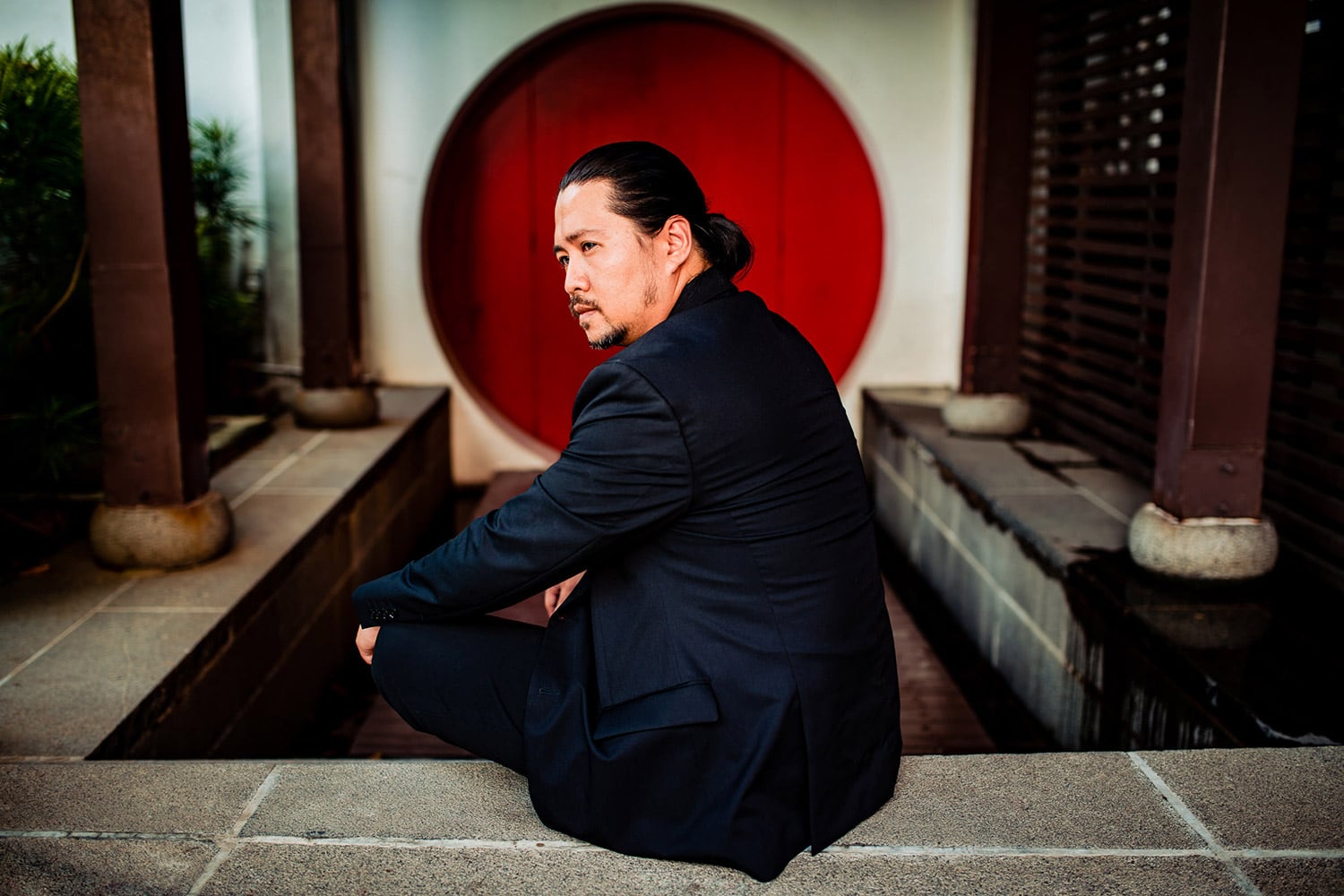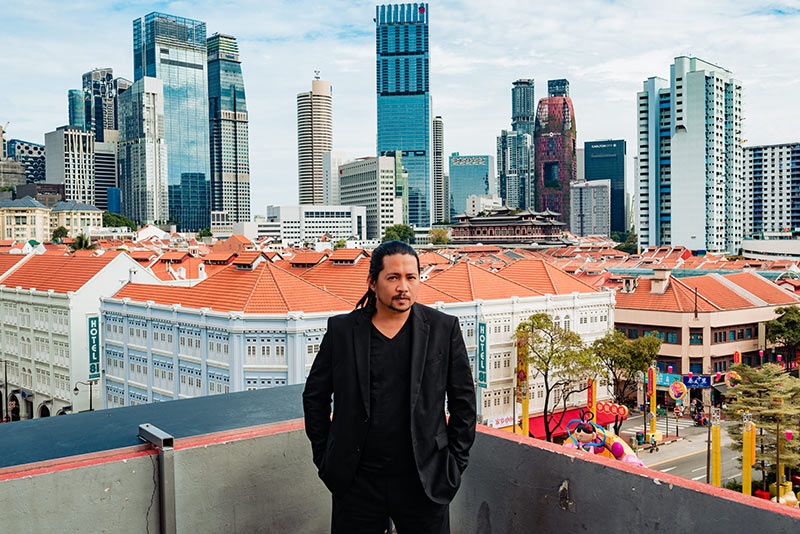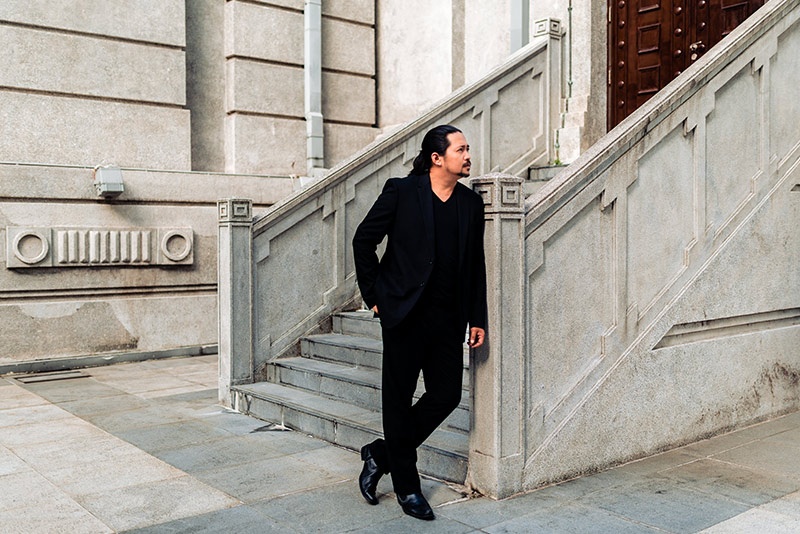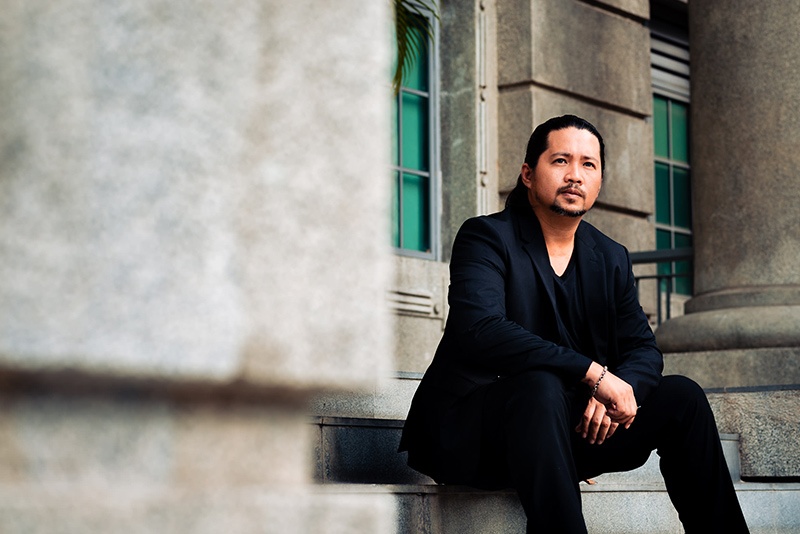The Fall and Rise of Josephus Tan

Most people would be familiar with the biblical parable of the Prodigal Son, a riveting story about atonement and redemption. The wayward son receives an inheritance from his father and squanders it all away during his travels to a distant land. When famine strikes, he is forced to work as a swineherd, which makes him realise the folly of his recalcitrant ways. Eventually, he returns to his father to plead for forgiveness and is received with open arms. In the case of Josephus Tan, it was not hunger but two tight slaps from his father to come to his senses. He recalls that fateful night at 22, being completely inebriated and suicidal. After a heated fight with his then-girlfriend, he went on a drunken tirade and turned the house upside down before blacking out. When Josephus awoke a few hours later, he was struck by a question from his father: “What’s hurting you inside?” The long talk about existentialism and how his current lifestyle would lead to either death or imprisonment, was a Damascene moment for Josephus, who, since then, has chosen the path of righteousness. Today, apart from being one of Singapore’s most reputable criminal lawyers, the self-proclaimed “pro bono extremist” has made it his personal mission to raise the legal awareness in the public sphere by giving free advice to people in need. Through his law firm Invictus Law Corporation, which he started in 2017, Josephus has also managed to help those who can't get access to a proper legal representation. Some of his controversial clients include Annie Ee’s abusers, Foo Li Ping (a mother implicated for killing her own 4-year old daughter at Paya Lebar) and the Orchard Towers saga where he defended three out of the seven accused. His ethos is that anyone is innocent until proven guilty, despite how heinous the crime may be. Not all the damned are alike, and the ability to recognise this is what makes Josephus different from the rest. If anything, his felonious past has taught him to look at both sides of the coin.
DAWN WONG: What inspired you to start practising law?
JOSEPHUS TAN: A confluence of factors. It probably stemmed from my formative years. We stayed in Bukit Merah, which was a really rough neighbourhood. My father was a security officer and a dough maker for a bread factory. We were poor and I suffered from a mixture of alcoholism and depression, which caused me to turn violent. But after that faithful night, when my father knocked some sense into me, I decided to put a stop to my escapism, drugs, sex, violence and embrace my failures. The next step was putting it to action and restarting my life. I went back to the basics by waking up early, reading the papers and looking for a job. Ironically, I became a janitor, cleaning toilets for Singapore’s biggest law firm. I also worked as a driver, ferrying all the beer aunties to the coffee shops. I did other odd jobs like being a mover and even sold second-hand computers.
It was a humbling period, and I started to understand the concept of hard-earned money. One day, I chanced upon an advertisement from a private law school offering a Diploma in law. After all my brushes with the law, I realised how powerful the law could be, so I decided to take up the course. After I got my diploma, I decided that I wanted to be a lawyer. My parents laughed, and my father told me: “If your head is small, don't wear a big hat. People like us won’t be lawyers.” Yet, I was hell-bent on making it a reality and took a bank loan to service my law studies in Southampton. I spent all my time studying and working. Finally, in 2007, I graduated with second-upper honours.
DAWN: Did you have other aspirations growing up?
JOSEPHUS: When you grow up in that kind of environment, the main instinct is survival. We weren’t taught to dream. I wasn't interested in school. I started smoking at 12, drinking at 14, got into my first gang fight at 16 after leaving secondary school and tried drugs before entering National Service. Ambition was all about finding a decent job (as a clerk), settle down and get an HDB flat. I was told that it was impossible for someone like me to achieve big things.

DAWN: Do you believe in the statement “justice is blind”?
JOSEPHUS: There is a lot of misinterpretation in this statement. Although it means the law favours no one, I believe that true justice must not only be heard or spoken of but also seen.
DAWN: Is that why you started doing pro bono work?
JOSEPHUS: My mentor when I started out was Subhas Anandan, who was a big advocate of pro bono work. I saw very solid values in him. The law is pervasive and when you possess a knowledge so powerful like that, you can use it to help others, especially the marginalised. I believe legal knowledge should be shared.
DAWN: Does this put a huge financial strain on yourself? I read that you are striking a better balance between making money and doing pro bono work.
JOSEPHUS: Just three years ago, I was doing so much free work that I have had to survive by working as a freelance pest controller on ships. Now that I have started my own firm, it’s a 50-50 split between paid and unpaid work. Being financially stable will help me to sustain my pro bono efforts in the long run.
DAWN: What has been the most compelling case you have encountered in your line of work?
JOSEPHUS: It has to be the “Yishun cat killer case”. This man only killed one cat, but he was branded as the infamous Yishun cat killer by the public. I recall the first time I visited him at his flat. When I walked into the room, I saw him sitting at the table staring at his goldfish. I then discovered that he was actually intellectually impaired and his parents would padlock the front door to prevent him from wandering out. I felt very sorry for him and realised that this was a side the public would never know. Since then, I was inspired to take on more cases with intellectual disability in Singapore.
DAWN: I must say that you have garnered yourself a reputation for being a “gangster lawyer.” Has that label helped or hurt your work in any way?
JOSEPHUS: It was the Chinese press that gave me the nickname. I still do defend many gang members in my practice, and they actually find it hard to pronounce my name, so “gangster lawyer” stuck. There were many variations: the long-haired lawyer, the pai kia lawyer and so on. It became a term of endearment for many on the ground. I actually like this moniker because it makes me more connected and closer to the people on the ground, and it helps me reach out to the heartlanders. When they need help, they think of me. Above all, this name is true to my past and who I am.

"As a criminal lawyer, my job is to look at you through a pair of legal (not moral) eyes. I may disagree with you, but legally I’ll stand with you."
DAWN: Tell me about your favourite tattoo and the story behind it.
JOSEPHUS: It has to be the tattoo on my forearm. It is a line from an Italian opera song. In 2013, when my dad passed away, the song comforted me greatly. It translates to: “I dream of souls who are always free, full of humanity in the depths of the soul.” This tattoo was a tribute to my dad.
DAWN: “Invictus,” the name of your law firm, means “unconquered” in Latin. Is there anything in life that you haven’t been able to defeat or conquer?
JOSEPHUS: Till now, I’m unable to conquer making healthy living a goal.
DAWN: Earlier you mentioned that your mentor was Subhas Anandan. What were the best lessons you learnt from him?
JOSEPHUS: For Subhas, his courage inspires me the most. This was most evident when he spoke up for clients who committed horrible crimes. I also admired his compassion towards all pro bono cases, which was never about the money. It opened up my mind to what a true criminal lawyer should be. Today, I live by these three Cs: Conviction, Courage and Compassion.
DAWN: You clearly have the courage to take on rather controversial cases and even defend people who have committed “heinous crimes” (in the public’s eyes). Does it weigh on your conscience and do you really think that there is redemption for the worst murderers?
JOSEPHUS: I believe that everyone is in the grey zone. But when someone commits a crime, they have crossed over to the black side. Just because you did something wrong once in your life, doesn’t mean you will do bad things for the rest of your life. I have been given so many second chances, and through those chances, I secured a breakthrough. Human beings are capable of both good and evil, so we should give second chances. It is also about being professional. As a criminal lawyer, my job is to look at you through a pair of legal (not moral) eyes. I may disagree with you, but legally I’ll stand with you. In my line of work, you learn how to detach yourself from your own moral values and exercise professional judgement.
DAWN: Is it more important to help yourself, help your family, help your society, or help the world?
JOSEPHUS: Before I started my own firm three years ago, I placed myself the last. I derived happiness from helping others. After going through several roller coasters, I reached a stage of enlightenment. The keyword here is sustainability. Now, I help myself first. This is followed by my loved ones, then society and finally the world. It used to be the other way round, but now I see that if I help myself first, then I can help others.
DAWN: What is your opinion about the death penalty?
JOSEPHUS: My position is this: you don’t make life, you don’t take life. We are progressing by removing the mandatory death penalty in 2008. I personally don’t believe in it.
DAWN: What do you think is your biggest regret and failure?
JOSEPHUS: My biggest regret to date is not being able to provide for my father. I could not even help or save my dad, nor could I give him a good life. I was famous, prominent and yet, dead broke. I could not even provide for my father’s funeral, it was covered by the goodwill of many of my supporters. When I graduated, my parents could not afford to fly up to the UK to attend my graduation, because they had spent all their money on my law education. I remember crying and deciding not to go for my convocation.
DAWN: By what standards do you judge yourself?
JOSEPHUS: By my own standards. I am my own motivator. As long as I can sleep well at night and have a cause to live for, I should not bother living according to the standards of others.

At the end of the interview, Josephus hands me his name card and says that I can contact him anytime.
If I encounter any trouble with the law? I ask.
“No, if you need anything. Or if you need a friend,” he says.
Some people reach the top and tend to forget where they came from, but I get a sense that despite making a name for himself, Josephus still has his feet firmly planted on the ground.
****
Edited by Wy-Lene Yap

